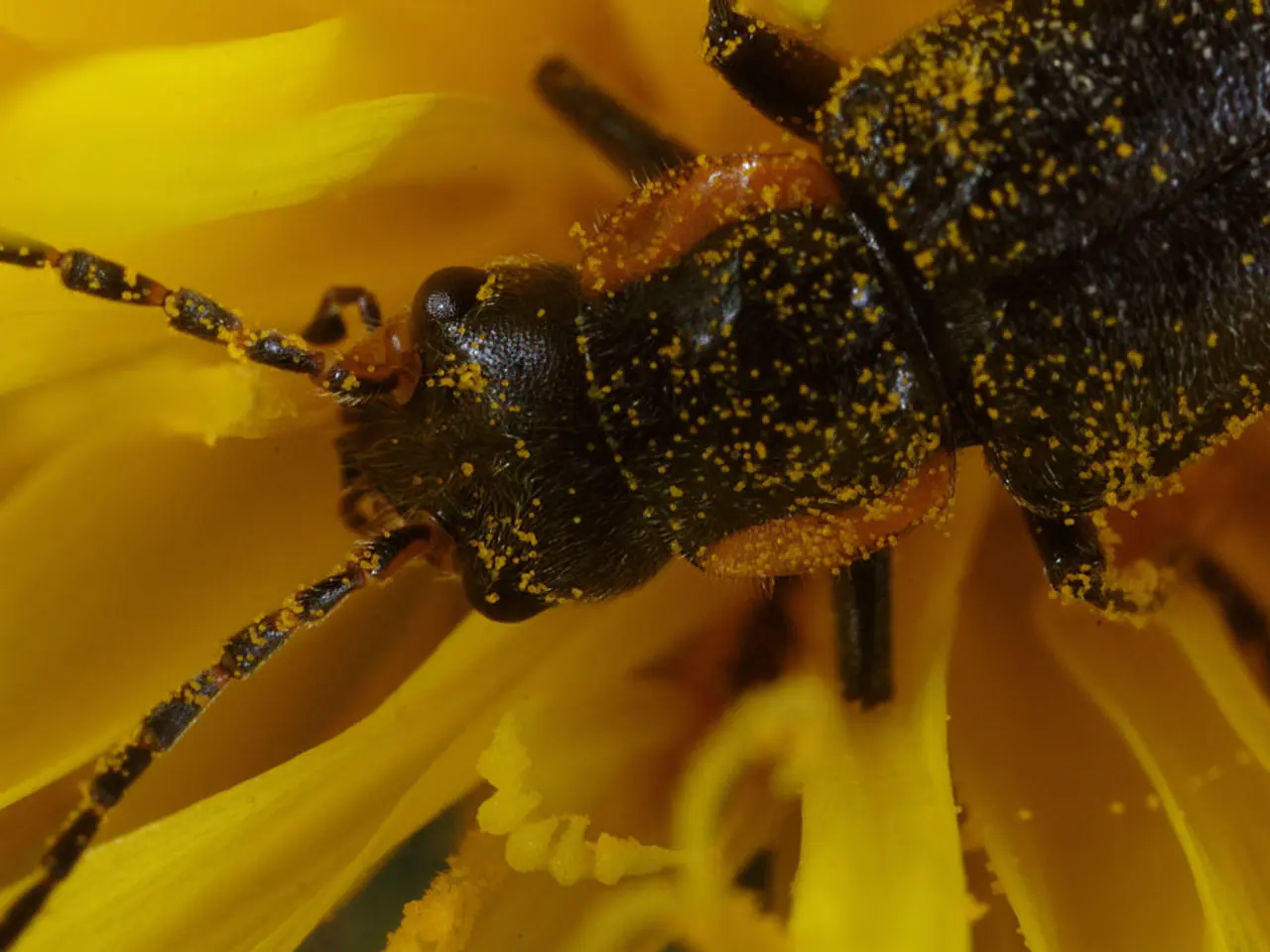Methods to Repel Caterpillars from Tomato Plants: Practical Solutions for Garden Enthusiasts
In the world of gardening, one common pest that can cause significant damage to tomato plants is the Tomato Hornworm. This bright green caterpillar, distinguished by its white stripes and black horn, can wreak havoc on tomato plants by feeding on leaves, stems, and fruit. However, fear not, as there are several organic methods available to help control these unwelcome guests and protect your precious produce.
Glen, a gardening expert with over 15 years of experience, has written extensively on the subject, sharing insights on garden fungicides, candy cane peppers, and watermelon, among other topics. His advice on managing tomato hornworms is invaluable.
One effective approach is handpicking. Regularly inspect your tomato plants, and remove hornworms by hand. They can be dropped into a bucket of soapy water to kill them humanely or fed to chickens, if available. This method is particularly effective when you only have a few plants.
Another organic solution is Bacillus thuringiensis (Bt), a naturally occurring soil bacterium formulated as a spray that specifically targets caterpillars like tomato hornworms without harming beneficial insects, birds, or mammals. It works well to control these pests and is safe for organic gardening.
Neem oil, a botanical extract, is another effective organic option. It suffocates small pests, including caterpillars, and interferes with their development. It is safe for humans and pets and can be used as a spray.
Diatomaceous earth, a natural powder, works by dehydrating insects through abrasion of their exoskeletons. While more effective on crawling insects, applying it directly on the stems and leaves where hornworms feed can help reduce their numbers.
Homemade sprays, such as a mixture of garlic, cayenne pepper, dish soap, and water, can be sprayed on foliage to repel hornworms. However, these are generally more effective for light infestations rather than severe ones.
A diluted vinegar and water solution can kill and repel caterpillars, but it should be used cautiously to avoid harming plants.
In addition to these methods, encouraging predator populations, such as ladybugs, birds, and parasitic wasps, can help reduce hornworm numbers in the garden. Ladybugs and birds consume hornworm eggs and small caterpillars, while parasitic wasps lay eggs on caterpillars, which then feed on the hornworm.
Companion planting with marigolds and basil can also deter hornworms due to their strong scents. Row covers can prevent adult moths from laying eggs on the leaves of tomato plants.
Vigilance and integrated approaches, combining these organic methods, can effectively manage tomato hornworm infestations. So, keep a watchful eye on your tomato plants, and with these organic solutions, you can protect your garden from these pesky pests.
Maintaining a home-and-garden lifestyle, one must keep an eye on tomato plants for the Tomato Hornworm, a common pest that can cause significant damage. Organic methods such as handpicking, using Bacillus thuringiensis (Bt), neem oil, diatomaceous earth, homemade sprays, and encouraging predator populations, can help control these unwelcome guests and safeguard your garden produce.








